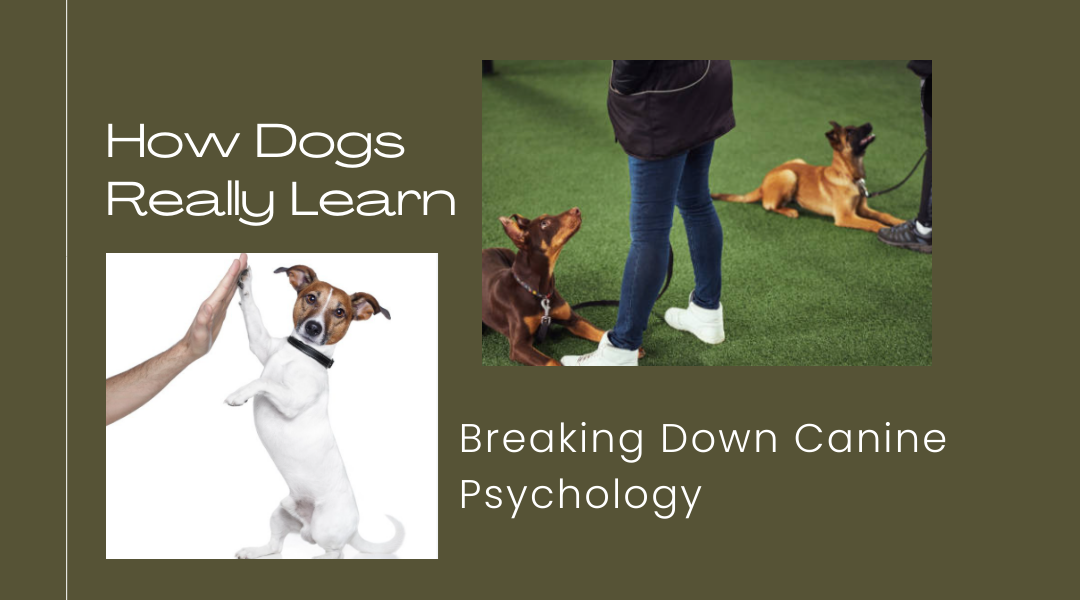Dogs don’t think like us. They don’t plot revenge when you leave for work or sulk because you forgot their favorite toy. Instead, they operate on a simpler but fascinating system—one built on instinct, association, and immediate consequences. If you’ve ever wondered why your dog goes nuts at the sight of a leash or suddenly freezes when the vet’s office comes into view, here’s what’s really happening in their heads.
Learning Without Thinking: The Power of Association
Dogs are masters of linking experiences—for better or worse.
- The Good Stuff: Ever notice how your dog bolts to the door the second you pick up your keys? That’s not magic; it’s conditioning. If car rides usually mean fun (park, treats, adventures), keys jingling = joy incoming.
- The Bad Stuff: On the flip side, if every vet visit ends with a needle, just stepping into the clinic’s lobby can trigger panic. The smell, the floor tiles, the receptionist’s voice—it all screams danger to them, even before anything happens.
This isn’t a conscious choice. It’s automatic, like how you might flinch at a dentist’s drill sound before they even touch you.
Real-World Fix:
Say your dog hates nail trims. Right now, clippers = stress. Flip the script:
- Bring out the clippers, then toss a handful of chicken.
- Repeat until they perk up at the sight of them.
- Now touch their paw briefly before treating.
Slowly, they’ll learn: clippers mean snacks, not trauma.
Copycats: How Dogs Learn by Watching
Puppies aren’t born knowing how to “dog.” They learn by mimicking—their mom, littermates, even you.
- A puppy who sees older dogs wait politely for food is more likely to do the same.
- If your dog watches you open the fridge daily, don’t be surprised when they nose at it hoping for leftovers.
Use This to Your Advantage:
Got a new pup? Let them shadow your calm older dog during walks or greetings. They’ll pick up manners faster than if you’d drilled them alone.
One-and-Done Trauma: When a Single Event Sticks
Some lessons take repetition. Others? One bad moment is enough.
- A dog who gets swarmed by off-leash dogs at the park might suddenly hate all other canines.
- A single car accident can make loading into a vehicle a battle for life.
The Fix? Patience and Positive Redirection:
For the car-phobic dog:
- Start by feeding meals near the parked car.
- Progress to tossing treats inside without closing the door.
- Eventually, short drives to fun places (not just the vet!).
What Works vs. What Doesn’t: The Dog’s Mantra
Dogs aren’t stubborn—they’re pragmatic. They repeat what gets results and ditch what doesn’t.
- Barking at you for attention? If you yell “Quiet!” but then cave and play, they’ve won. Barking = success.
- Jumping on guests? If even one person pets them mid-leap, they’ll keep doing it.
Shift the Equation:
- Reward quiet moments with attention.
- Teach “sit for greetings” and enforce it consistently.
- If a behavior backfires (like stealing socks gets them chased), they’ll do it more—it’s a game to them.
The Golden Rule: Timing is Everything
Dogs live in the now. A reward five seconds late might as well be random.
- Too slow: You call your dog, they come, then sniff a bush before you praise. They think sniffing earned the treat.
- Just right: The second their butt hits the ground for a sit, mark it (“Yes!”) and reward. That’s crystal-clear communication.
Why Punishment Backfires
Yanking a leash when your dog barks at another dog doesn’t teach “be quiet.” It teaches:
- Other dogs = pain. Now they’ll bark and lunge to keep the “threat” away.
- You’re unpredictable. Trust erodes.
Better Approach:
- Spot another dog at a distance where yours stays calm. Treat liberally.
- Gradually decrease the distance over weeks, keeping them under threshold.
- You’re not bribing—you’re rewiring their emotional response.
Final Truth: Dogs Aren’t Fuzzy Humans
They don’t “misbehave” out of spite. They follow a simple code:
- Is this safe? (Based on past experiences)
- Does this work? (Did it get me what I wanted last time?)
Your job? Control the answers:
- Make good choices rewarding (treats, play, freedom).
- Make bad choices pointless (ignore jumping, redirect chewing).
- Never let fear or frustration dictate their associations.
When you work with their instincts—not against them—training stops feeling like a battle and starts feeling like teamwork.
